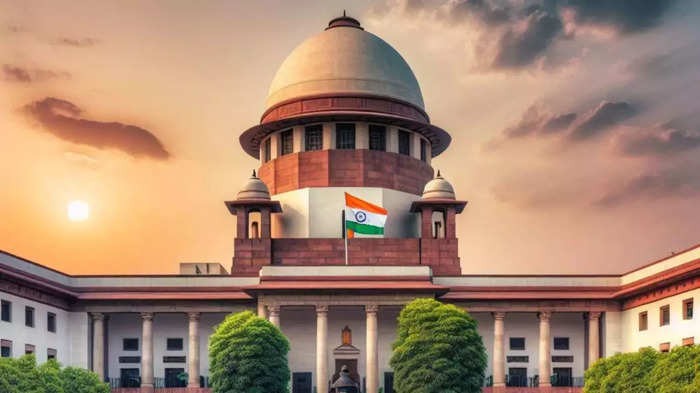
New Delhi: The Supreme Court has said in an important comment that reservation cannot be given on the basis of religion. A bench headed by Justice BR Gavai made this clear during the hearing of a petition filed by the West Bengal government. The case pertains to a decision of the Calcutta High Court, which had declared the state government’s decision to include 77 Muslim communities in the Other Backward Classes (OBC) as illegal.
High Court’s decision challenged in SC
The West Bengal government challenged the Calcutta High Court’s decision of May 22, 2024 in the Supreme Court. The High Court had said that the state government had included 77 Muslim communities in the OBC category on the basis of religion, which is unconstitutional.
- The High Court also quashed the decision to include 37 castes as OBC under the West Bengal Backward Classes Act of 2012.
- The court also said that there were serious flaws in the process of survey and data collection before granting reservation.
Kapil Sibal presented the side of the state government
Senior advocate Kapil Sibal, appearing for the West Bengal government, challenged the High Court order.
- He said that reservation was not given on the basis of religion, but on the basis of backwardness.
- Sibal also argued that the High Court’s decision would affect the rights of thousands of students and job seekers.
- He objected to the repeal of provisions like Section 12, which empowers the state government to identify and classify castes.
Sibal’s side: What was the argument?
- Reservation based on backwardness:
Sibal said the Ranganath Commission and other committees had also recognized the social and economic backwardness of Muslim communities.
- Citing data and recommendations:
- The decision to include 77 Muslim communities in the OBC list was based on the recommendations of the Central List and the Mandal Commission.
- He said that the minority community (Muslims) with 27-28% of the population is deprived of adequate representation.
- High Court’s decision unfair:
Sibal said that it is unfair to interfere in the authority of the executive.
High Court decision and controversy
- The High Court said in its decision that the decision to include 77 communities was motivated by political intentions.
- The decision was taken without consulting the Backward Classes Commission, following the then Chief Minister’s statement in 2010.
- The High Court also found that the process of survey and data collection was not completed.
Supreme Court’s comment: No reservation on the basis of religion
Supreme Court Justice BR Gavai took a strict stance in this matter.
- He said that reservation can be given only on the basis of social and economic backwardness and not on the basis of religion.
- The court directed the state government to prove that the new castes included in the OBC list are actually socially and economically backward.
- The Supreme Court also asked whether the West Bengal Backward Classes Commission was consulted before including these communities.
Next hearing will be on January 7
The Supreme Court said that the next detailed hearing of the case will be held on January 7, 2025. The state government has been directed to present quantitative data by then.
Highlights of the case:
- What did the High Court say?
- The inclusion of 77 Muslim communities in OBC was on the basis of religion.
- Many provisions of the West Bengal Backward Classes Act of 2012 were repealed.
- State Government’s Argument:
- Reservation was given on the basis of backwardness.
- Thousands of students and job seekers will be negatively impacted.
- Supreme Court’s stance:
- Reservation on the basis of religion is unconstitutional.
- Present quantitative data based on backwardation.
- What is the decision of the Supreme Court?
Reservation cannot be given on the basis of religion. - What argument did the West Bengal government give?
Reservation was given on the basis of backwardness, not on the basis of religion. - Why did the High Court cancel the reservation?
The High Court found that the process of survey and data collection before granting reservation was incomplete. - What will happen in the next hearing?
The Supreme Court has directed for a detailed hearing of the case on January 7, 2025. - Will this decision affect other states?
This decision can set an example regarding reservation policy in other states.
 look news india
look news india